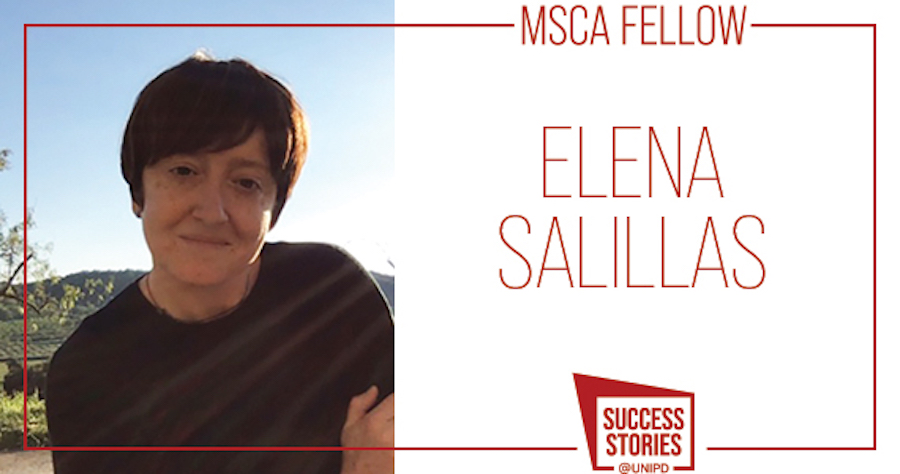
MSCA Fellow: Elena Salillas
Maths and brain: Would you like to know how these two elements can be studied against tumor growth?
Read our interview with Elena, a Spanish researcher developing a new line of research at the University of Padua (Department of Neurosciences) as a MSC Fellow.

Can you explain your project to us? Which are the objectives of your research?
Re-MAPMATH implies the study of brain reorganization for mathematical processes. We focus on brain plastic changes that occur during brain tumor growth. These changes are a sort of adaptation to spare the functions that usually reside in the infiltrated neural tissue. Apart from supplying critical information for the specific patient, these changes are a window to the study of alternative brain configurations to perform the same functions. As a metaphor: the fastest way to joint to points is a straight line. However, when a straight line is not possible, there are many other ways to connect those two points. Adaptive brain changes are rarely studied for numerical functions.
Why did you choose to apply with University of Padua as Host Institution?
My focus on numerical cognition was one of the reasons why I chose Unipd. Moreover, in the Department of Neurosciences, there is an active multidisciplinary team treating brain tumors from clinical and scientific approaches. The MSCA H2020 programme was a way to join it, and a way for bidirectional knowledge transfer.
What would you suggest to a researcher that is planning to apply for a MSCA-IF?
In order to achieve its full purpose, your investigation must be visible to society. The Unipd International Research services help towards this goal, going beyond a strictly research-related support.
International Research Office
via Martiri della libertà 8, 35137 Padova, Italy
tel. +39 049.827 1947 / 1948 / 1945
fax +39 049.827 1911
international.research@unipd.it


